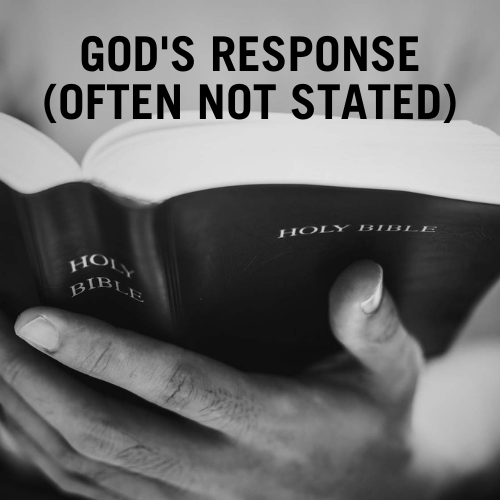Bringing Pain to the CrossMuestra

LAMENTING
Lamenting is approaching God with our pain and suffering. But how can we do this? God has given us a way. View the video below to learn how.
Laments can have seven parts as seen in the images below.
Not all parts are present in each lament, and they are not always in the same order.







A COMPLAINT OR REASON FOR GRIEF
Laments allow a person to fully express their grief and even accuse God. This is often, but not always, followed by a statement of trust in God. This combination makes for very powerful prayers (see Psalm 88 and Lamentations). The grief is not hidden, but rather expressed openly to God.
Laments encourage people to be honest with God, to speak the truth about the injustice that they feel, and to agree with God that he is the God of justice. To lament to God is a sign of faith, not of doubt.
In a lament, people do not attempt to solve the problem themselves, but they cry to God for help. They look to God, not the enemy, as the one ultimately in control of the situation. They ask God to take action to bring justice rather than taking action themselves.
Laments are well known in many communities. They are a good way to express deep thoughts and emotions.
PIECES OF A LAMENT
Read Psalm 13 and identify the parts of the lament. (Scroll to the end to see the answer key).
Reflect & Respond
Optional Tip: Journaling your responses to the scripture and follow up questions can help you process what you're learning and see your progress towards healing over time.
Take some time to create a lament to God. Your lament could be a song, poem, prayer, or any creative way you wish to express your feelings to God. It does not have to include all parts of a lament, but it should have a reason for your grief or suffering.
Answer Key: vs. 1–2, address and complaint; vs. 3–4, request; vs. 5a, statement of trust in God; vs. 5b–6, vow to praise.
Escrituras
Acerca de este Plan

God understands your pain. He cares…and he wants to help you find healing. In this study you will explore God's Word and reflect on: lamenting, expressing grief and sorrow, bringing your pain to the cross, and helping others. This study is part 4 of the Never Alone: Trauma Healing series. While written for the military community, the themes apply to anyone who has experienced intense trials and wants to heal.
More









